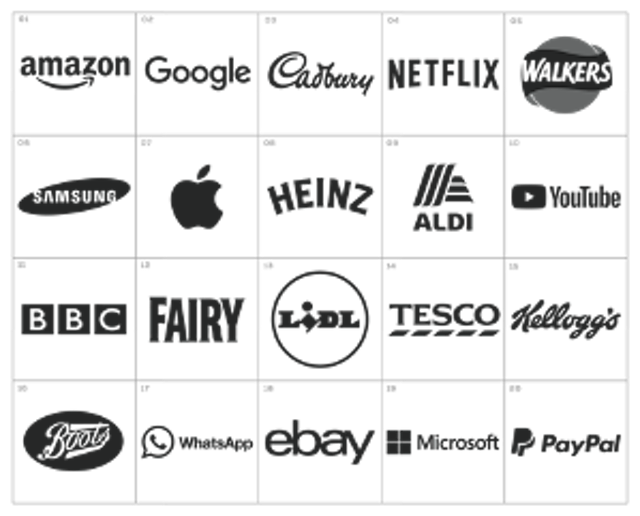What it means to be a Most Connected brand in 2020
Over the course of the coronavirus health crisis we have experienced a seismic shift in the way we work, socialise, shop, relax and engage.
Brands have never had a more crucial role to play in our lives, offering guidance, hope, safety and distraction. As such, there has never been a more relevant time to measure which brands the public connect with and the nature of this connection.
Most Connected Brands (MCB) is the only study that measures the strength of these brand relationships based on the views of the public, rather than a hidden algorithm or a panel of industry experts. Consumers are, after all, the people who can make or break a brand by forming lifelong connections or undergoing regrettable one-time experiences never to be repeated.
Opinium’s Most Connected Brands study shows that what a brand represents is so much more than a logo, a product, or a service – a brand can be a lifestyle, a teacher or even a friend.
Our framework diagnoses the building blocks of successful brands, including their presence, distinctiveness, emotional connection and social traction, as well as the brand characteristics and markers which lend each brand a unique identity.
Over the last few months we have spoken to 6,000 people, collated 10,000 spontaneous brand mentions and facilitated 96,000 brand reviews to offer a robust and scientific way to unpick the intangible alchemy of brand connection.
Regardless of your sector and whether your brand has made the Top 100, we hope that in this time of great uncertainty this report will provide you with the inspiration, ideas and motivation to create, build and grow the connections that matter to you

The movers and shakers
When we look at the very top of our Most Connected Brands Index over the last two years, the top three remain consistent: Amazon, Google and Cadbury retain their spots, the other entrants of the Top 10 just shuffle positions. However, there is one noticeable newcomer, which jumps seven places versus their 2019 ranking – Netflix.
Netflix has continued its meteoric rise from 30th in 2018 to fourth in 2020. This is no small feat amid such illustrious company, so how has the media-services provider managed it?
A key driver has been Netflix’s growth in Prominence, which has been fuelled by their aggressive push on Above-the-Line (ATL) activity. In 2019 the brand’s media spend grew by 28% meaning that since the start of 2017, Netflix has almost tripled their ATL investment – a clear indication of their financial commitment to raising top of mind awareness amongst consumers.
For many, Netflix represents a fundamental shift in how we consume films and television. A similar shift in how we communicate can also be seen as responsible for propelling another brand up the 2020 rankings: WhatsApp.
It’s hard to find someone not in a WhatsApp group. From kids at school, to the parents of the football team, to friendship groups and work groups,
WhatsApp has become the go-to platform for quick group communication. This has been cemented by the lockdown which has seen a wealth of intergenerational family groups spring up.
WhatsApp builds connection through Dynamism, Distinction and satisfaction. Its distinct offer is incredibly easy to use, works perfectly with the always-on way of life and facilitates the constant need for communication and sharing.
Yet even though two of the most prominent movers are technology platforms, there remains a diverse spread of brands from across other categories which have improved their connection with consumers. A case in point are two old school FMCG brands, hailing from the perhaps less fashionable categories of frozen food and household cleaning.
Fairy is a brand that has been with us for decades and that is very much at the heart of how the brand has built a strong emotional bond with consumers. Rating sixth for Emotional connection, the public have complete faith that the product won’t let them down, making Fairy one of the top brands we can’t live without.
In recent times, Fairy has also addressed sustainability clearly and with transparency. Tapping into the modern mind set of social responsibility, CSR is now a clear strength for the brand. That modern mind set has also led the brand to a partnership with LBGT+ charity the Albert Kennedy Trust, and actor and singer Duncan James, to help provide accommodation for homeless members of this community.
With the quest for health eating and scratch cooking rather flying in the face of frozen food, it may be a surprise to see Birds Eye also improving its position in the ranking. Trading in similar territory to Fairy, Birds Eye is renowned for having products that deliver and being that dependable family favourite that we have all grown up with. However, heritage does not guarantee connection, and Birds Eye have successfully remained relevant to consumers through activity such as ‘Eat in full colour’ promoting steam fresh frozen veg and ‘So what’s for tea’ which provides help, support, and inspiration for the brand’s heartland of busy families.
But, as some brands rise up the rankings, others inevitably have to fall.
One of the most noticeable trends this year takes place outside of the top 50. Ford, BMW, Volkswagen, Toyota and Mercedes-Benz have all witnessed sizeable drops in their ranking. As our data is drawn from before the coronavirus crisis, this does not bode well for a sector which has been particularly hard hit during the lockdown period. The drop-in connection for consumers may also be explained by the fall in car registrations and a shift in consumer attitude to more environmentally friendly ways of transport.
Content created with:

Opinium
We help our clients harness the power of insight to build, grow, promote and make strategic business decisions. Find out more at www.mostconnectedbrands.com
Opinium...
